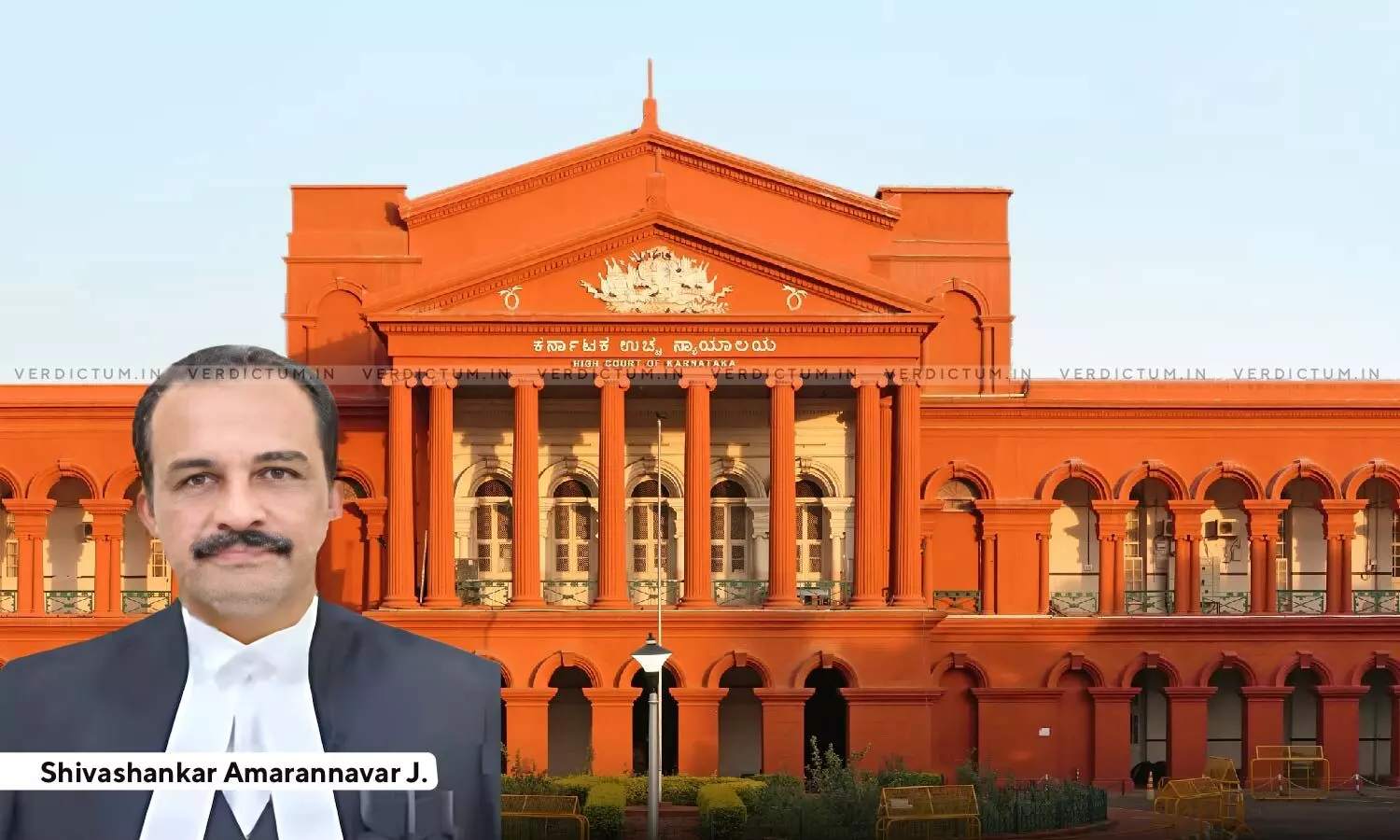
If Caste Abuse Is Not Expressly Mentioned In Complaint, Offence Under SC/ST Act Will Not Be Attracted: Karnataka High Court Grants Anticipatory Bail
 |
|The Karnataka High Court recently reiterated that the absence of mention of the explicit mention of caste-related derogatory language in a criminal complaint filed under the Scheduled Caste and Scheduled Tribe (Prevention of Atrocities) Act, the offence under the Act will not be attracted and that the bars outlined in Sections 18 and 18A also will not apply. Section 18 of the Act bars anticipatory or pre-arrest bail.
The Single Judge Bench of Justice Shivashankar Amarannavar was dealing with a Criminal Appeal filed under Section 14(A)(2) of the Scheduled Caste/Scheduled Tribe (Prevention of Atrocities) Act challenging the order that dismissed the anticipatory bail of the accused, issued by the Special Judge in Bengaluru. In addition to seeking the quashing of the said order, the appellant also prayed for anticipatory bail.
Advocate Nikhitha N. appeared for the appellant while Advocates M. Divakar Maddur and Nanjegowda C. appeared for the Respondents.
Background: The complainant, belonging to the Adhi Karnataka Caste categorized under the Scheduled Caste, alleged ongoing disputes between himself and the appellant/accused centered around caste-related verbal abuse. The complaint further detailed that, with the same discriminatory intent, the appellant/accused had previously intercepted and individually subjected the complainant to caste-based insults, coupled with life-threatening gestures.
Subsequent to the filing of the complaint, a case was registered against the appellant/accused for the offences punishable under Sections 3(1)(r)(s) of SC/ST (POA) Act, 1989 (in short “the Act”) and Sections 323, 341, 504 and 506 of Indian Penal Code. Anticipating his arrest, the appellant/accused submitted an application for anticipatory bail. However, the said application was declined through the impugned order, which was challenged before the High Court.
The appellants argued that the content of the complaint itself indicates prior disputes between the appellant/accused and the complainant. They pointed out a delay in filing the complaint and emphasized that the specific words used by the appellant/accused to verbally abuse the complainant were not explicitly mentioned in the complaint. The appellants also contended that the allegations in the complaint do not meet the criteria for constituting an offence under Section 3 of the Act. Accordingly, they asserted that the bars under Sections 18 and 18(A) of the Act do not come into play.
On the contrary, the complainant contended that the allegations within the complaint clearly indicate that the appellant/accused engaged in caste-based abuse and issued life-threatening threats. The complainant argued that these actions fall within the purview of an offence under Section 3 of the Act. It was also argued that as per the provisions of Sections 18 and 18A of the Act, the Session Judge appropriately denied the anticipatory bail petition of the appellant/accused.
Noting the submissions, the Court observed that the complaint lacks specific mention of the words used for caste abuse. Consequently, the High Court asserted that at this juncture, it cannot definitively be concluded that the content of the complaint satisfies the elements of an offence under Section 3 of the Act. Therefore, the Judge stated that the bar under Sections 18 and 18A of the Act is not applicable in the current context.
"The said averment reveal that the appellant/accused stopped the complainant and talked with him in singular and made caste abuse. What are words used for caste abuse has been not stated in the complaint. Therefore, at this stage it cannot be said the averment of the complaint attracts offence under Section 3 of the Act", stated the Judge in its order.
The Court also observed, "Therefore, bar under Section 18 and 18A of the Act is not attracted, in view of the same, decision of the Hon’ble Apex Court in the case of Prathvi Raj Chauhan Vs Union of India and others reported in 2020 SCC OnLine SC 159 (supra). Without considering these aspects the learned Session Judge/Special Judge has passed impugned order which requires interference by this Court."
The criminal appeal was accordingly allowed and the Court allowed the anticipatory bail application of the accused.
Cause Title: N Tejasvi Reddy Alias Tejureddy v. State of Karnataka & Ors. [CRIMINAL APPEAL NO. 1593 OF 2023]